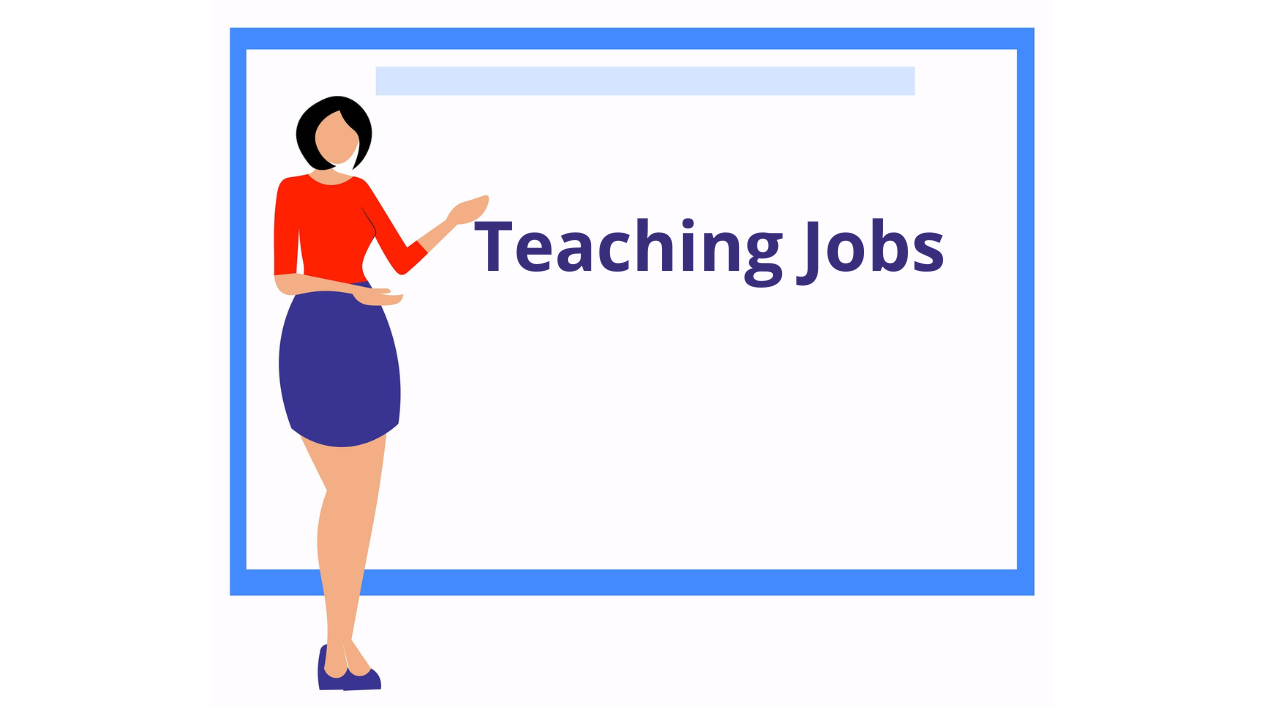Teaching Careers: A Comprehensive Guide to Opportunities, Challenges, and Rewards
Teaching is more than just a profession; it’s a calling that shapes the future by influencing the minds of the next generation. As one of the most impactful careers, teaching offers opportunities to make a lasting difference in society. This comprehensive guide explores the various aspects of a teaching career, including the different paths available, the qualifications needed, the challenges faced, and the rewards of this noble profession.
The Different Paths to Teaching
Teaching is a diverse field with various paths that cater to different interests, specializations, and levels of education. Here are some of the main categories within the teaching profession:
- Early Childhood Education:
Early childhood educators work with young children, typically from birth to age eight. This phase is crucial for cognitive and emotional development, making the role of an early childhood educator vital. Teachers in this field focus on foundational skills, socialization, and introducing basic concepts playfully and engagingly. - Elementary Education:
Elementary school teachers instruct children in kindergarten through fifth or sixth grade, depending on the school system. They cover a broad range of subjects, including math, reading, science, and social studies. Teachers at this level play a critical role in shaping a child’s academic foundation and attitude towards learning. - Middle School Education:
Middle school teachers educate students typically in grades six through eight. This stage is transitional, where students start exploring specific subjects more deeply. Teachers in middle schools often specialize in subjects like math, science, English, or social studies and help students develop critical thinking and problem-solving skills. - High School Education:
High school teachers work with students from grades nine to twelve, focusing on preparing them for college, vocational training, or the workforce. These educators often specialize in particular subjects such as mathematics, science, literature, or history, and they play a pivotal role in shaping students’ future career paths. - Special Education:
Special education teachers work with students who have a variety of learning, emotional, physical, or cognitive disabilities. These educators need specialized training to adapt lessons and teaching strategies to meet the individual needs of their students. Special education is a highly rewarding field, offering the chance to make a significant impact on the lives of children who require extra support. - Postsecondary Education:
Postsecondary teachers, also known as professors or lecturers, work in colleges, universities, and other institutions of higher education. They may teach undergraduate or graduate students, conduct research, and publish scholarly articles. This path often requires advanced degrees and deep expertise in a specific academic discipline. - Vocational and Technical Education:
Vocational teachers provide training in specific trades or professions, such as healthcare, technology, automotive repair, or culinary arts. These teachers equip students with practical skills that prepare them for immediate entry into the workforce. Vocational education is essential for those pursuing careers that require specialized training rather than a traditional academic route. - Adult Education:
Adult education teachers work with adult learners, offering courses in basic literacy, GED preparation, English as a second language (ESL), and continuing education in various fields. This area of teaching is critical for adults seeking to enhance their skills, change careers, or achieve personal educational goals. - Online Education:
With the rise of technology, online teaching has become an increasingly popular path. Online educators teach through virtual platforms, reaching students across the globe. This mode of teaching requires proficiency in digital tools and an ability to engage students in a virtual environment.

Qualifications and Training for Teachers
Becoming a teacher requires a combination of formal education, certification, and practical experience. The specific requirements vary depending on the level of education and the region where one intends to teach.
- Educational Requirements:
- Bachelor’s Degree: A bachelor’s degree in education is typically the minimum requirement for teaching in elementary, middle, and high schools. Some teachers may major in a specific subject area if they plan to teach at the secondary level.
- Master’s Degree: For those looking to teach at the postsecondary level or in specialized fields like special education, a master’s degree is often required. Many teachers also pursue master’s degrees to advance their careers and increase their earning potential.
- Doctoral Degree: A PhD or Ed.D. is generally necessary for those aiming for professorships at universities or leadership roles in education administration.
- Teacher Certification and Licensing:
Certification and licensing are mandatory for teaching in public schools in most countries. The process typically involves passing exams that assess both general knowledge and teaching skills. Some regions also require teachers to complete a teacher preparation program that includes student teaching experience. - Specialized Training and Endorsements:
Teachers who wish to specialize in areas such as special education, ESL, or gifted education may need additional certifications or endorsements. These programs provide teachers with the skills needed to meet the unique needs of specific student populations. - Continuing Education and Professional Development:
Education is a dynamic field, and teachers are often required to engage in continuing education to keep their skills and knowledge up to date. Professional development opportunities include workshops, conferences, online courses, and advanced degrees. This ongoing learning is essential for career growth and maintaining certification.
Education Careers: Exploring Opportunities in the Field of Education
Challenges in the Teaching Profession
While teaching is a rewarding career, it is not without its challenges. Teachers face various obstacles that can impact their job satisfaction and effectiveness.
- Workload and Burnout:
Teachers often work long hours, both in and out of the classroom. In addition to teaching, they are responsible for lesson planning, grading, parent-teacher conferences, and extracurricular activities. This heavy workload can lead to burnout, especially when combined with the emotional demands of working with students. - Classroom Management:
Managing a classroom with diverse students, each with different needs and behaviours is one of the most challenging aspects of teaching. Teachers must maintain discipline while creating an environment that fosters learning and respect. This requires strong interpersonal skills and the ability to adapt to various situations. - Low Pay and Limited Resources:
Despite the importance of their work, teachers are often underpaid, particularly in public schools. This financial strain can be compounded by a lack of resources, such as outdated textbooks, insufficient technology, and large class sizes. Teachers frequently use their own money to purchase supplies, which adds to the financial burden. - Standardized Testing and Accountability:
The emphasis on standardized testing can create pressure on teachers to focus on test preparation rather than holistic education. Teachers are often held accountable for their students’ performance on these tests, which may not accurately reflect a student’s overall learning or a teacher’s effectiveness. - Emotional Strain:
Teaching is an emotionally demanding profession. Teachers often form deep connections with their students and may take on the role of counsellor, mentor, and advocate. Dealing with students’ issues, such as family problems or mental health challenges, can be emotionally draining. - Administrative Challenges:
Teachers must navigate bureaucratic systems, comply with various regulations, and deal with administrative tasks that can be time-consuming and frustrating. These challenges can detract from the time and energy teachers have to focus on their primary role—educating students.
Rewards and Fulfillment in Teaching
Despite the challenges, teaching offers numerous rewards that make it one of the most fulfilling careers. These rewards go beyond monetary compensation and are often intrinsic.
- Impact on Students:
One of the greatest rewards of teaching is the ability to make a positive impact on students’ lives. Teachers have the power to inspire, motivate, and guide students, helping them reach their full potential. The satisfaction of seeing students grow, learn, and succeed is unparalleled. - Personal Growth and Lifelong Learning:
Teaching is a profession that encourages continuous learning and personal growth. Teachers are constantly exposed to new ideas, concepts, and perspectives through their interactions with students and colleagues. This ongoing intellectual stimulation keeps the profession dynamic and engaging. - Job Security and Demand:
Education is a field with a high demand for qualified professionals. As long as there are children and adults seeking knowledge, there will be a need for teachers. This demand provides a level of job security that is often lacking in other professions. - Work-Life Balance:
While teaching can be demanding, it also offers certain benefits in terms of work-life balance. Teachers often have a set schedule, with weekends, holidays, and summers off, allowing for time to recharge and pursue personal interests. This schedule can be particularly beneficial for those with families. - Diverse Career Opportunities:
The field of education offers a wide range of career opportunities beyond traditional classroom teaching. Teachers can transition into roles such as educational consultants, curriculum developers, school administrators, or even work in educational technology. These options provide opportunities for career growth and diversification. - Building Strong Relationships:
Teachers often form lasting relationships with their students, colleagues, and the broader community. These relationships create a supportive network that can provide both personal and professional fulfilment. The connections made in the teaching profession often extend beyond the classroom and can last a lifetime. - Contributing to Society:
Teaching is a profession that contributes directly to the betterment of society. By educating the next generation, teachers play a crucial role in shaping the future. This sense of purpose and contribution can provide deep personal satisfaction and pride.

Future Trends in Teaching
The teaching profession is continually evolving, influenced by technological advancements, changes in educational philosophy, and societal needs. Here are some trends that are likely to shape the future of teaching careers:
- Technology Integration:
The integration of technology in education is transforming how teachers teach and students learn. From online learning platforms to interactive whiteboards and AI-driven educational tools, technology is making education more accessible and personalized. Teachers will need to stay abreast of these developments and incorporate them into their teaching strategies. - Focus on Social and Emotional Learning (SEL):
There is an increasing recognition of the importance of social and emotional learning in education. SEL focuses on helping students develop skills such as empathy, self-awareness, and emotional regulation. Teachers will need to integrate SEL into their curricula to support the holistic development of their students. - Diversity and Inclusion:
As classrooms become more diverse, teachers will need to be equipped with the skills to create inclusive environments that respect and celebrate differences. This includes understanding cultural competencies, differentiating instruction for diverse learners, and addressing issues of equity and social justice. - Sustainability and Environmental Education:
With growing concerns about climate change and environmental sustainability, there is a push to integrate environmental education into the curriculum. Teachers will play a key role in educating students about sustainability practices and the importance of protecting the environment. - Lifelong Learning and Adult Education:
As the demand for continuous learning increases, there will be more opportunities for teachers in adult education and professional development. This trend is driven by the need for individuals to upskill and reskill in response to changes in the job market and technological advancements. - Globalization and Education:
Globalization is influencing education in profound ways. Teachers will need to prepare students to compete in a global economy, understand global issues, and appreciate diverse cultures. This may involve incorporating global perspectives into the curriculum and using technology to connect with classrooms around the world.
Business Careers: A Comprehensive Guide to Opportunities and Growth
Teaching is a career that offers a unique blend of challenges and rewards. It is a profession that requires dedication, passion, and a commitment to lifelong learning. Despite the obstacles, the impact that teachers have on their students and society is immeasurable. Whether you are drawn to the idea of shaping young minds, fostering a love for learning, or making a difference in the lives of students with special needs, a career in teaching can be profoundly fulfilling. As the educational landscape continues to evolve, teachers will remain at the forefront, guiding the next generation toward a brighter future.





Post Comment